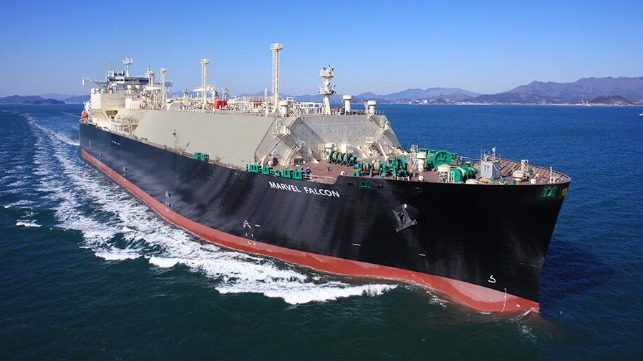Efforts Continue to Build Japan’s Ammonia Infrastructure

Efforts are continuing to build out Japan’s ammonia infrastructure to support the expanded use of the chemical in the country’s green initiatives. Japan’s largest importer of ammonia, Mitsui, announced plans to build a new ammonia carrier that will also be prepared to transition to ammonia for its propulsion. At the same time, Norway’s Yara along with its Japanese partners is exploring the establishment of a domestic clean ammonia distribution network and bunkering business in Japan.
Mitsui, which says it has been handling ammonia for around 50 years and currently handles around 700,000 tons of ammonia per year, signed a charter agreement with shipping company IINO Kaiun Kaisha for the operation of the next generation ammonia carrier. According to the companies, the vessel is “the world's first ammonia carrier to be designed and built based on the basic certification for ammonia-fuel-ready ship by the American Bureau of Shipping.”
South Korea’s Hyundai Mipo Dockyard has been contracted to build the ship. It will have a capacity of 23,000 m3 for ammonia which will be used after its delivery in December 2023 to transport ammonia mainly from Southeast Asia, to Japan and Northeast Asia. Mitsui says the vessel will ensure a steady supply of ammonia, which is used by customers as a raw material for chemicals and fertilizer. However, in the future Mitsui reports it will also consider using the vessel to supply ammonia as a fuel in Japan.
The companies are highlighting that the new vessel, which will be 525 feet long, will be their first environmentally friendly ship. The ammonia-ready propulsion system will include a main engine developed by MAN that will be able to operate on LNG, and switch to ammonia when the fuels become commercially available. It will be an energy efficient design to meet Phase III requirements and feature smart ship solutions.

that matters most
Get the latest maritime news delivered to your inbox daily.
Earlier in the month, Japan’s largest power generation company JERA announced that it was expanding its ongoing collaboration with Norway’s Yara, which has been focusing on decarbonizing power production in Japan. JERA and Yara, joined by Japanese fuel company Idemitsu Kosan will now be studying the potential for an ammonia bunkering business and distribution to the industrial sector in Japan. Among the areas they will be working on are establishing a domestic ammonia distribution network based at Idemitsu Kosan's Tokuyama complex, an ammonia bunkering business, and optimization of the shipping supply chain for ammonia fuels.
As part of its measures to reach carbon neutrality by 2050, the Japanese government’s plans target importing three million tons of ammonia for fuel by 2030 and 30 million tons by 2050.
